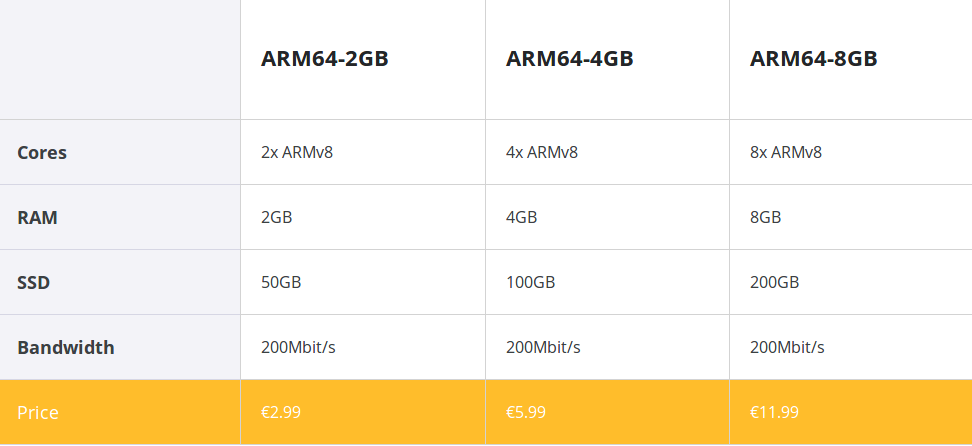Scaleway launched 32-bit ARM server hosting services in 2015 for 10 Euros per month, before dropping the price to 2.99 Euros per month half-year later, and now the company has just launched a new offering with 64-bit ARM servers powered by Cavium ThunderX processor going for 2.99 to 11.99 Euros per month depending on configuration.

The processors are equipped with DDR4 ECC memory, and all three services included unlimited transfer, so you don’t need to pay for any bandwidth fee. While the price is shown per month, you’ll be billed by the hour (0.006 Euro/h for ARM64-2GB), so if you are using those for development it may even cost less per month, as you can turn them off when not working.
All server are located in a Paris data center in France, and runs Ubuntu 16.04, but more operating systems and “InstantApps” will be added to the selection. More servers will soon be available in their Netherlands datacenters (AMS1).
You can add a new ARMv8 server in Scaleway dashboard to get started with the new servers. You’ll find a few more details on Scaleway Virtual Cloud Servers page.

Jean-Luc started CNX Software in 2010 as a part-time endeavor, before quitting his job as a software engineering manager, and starting to write daily news, and reviews full time later in 2011.
Support CNX Software! Donate via cryptocurrencies, become a Patron on Patreon, or purchase goods on Amazon or Aliexpress




